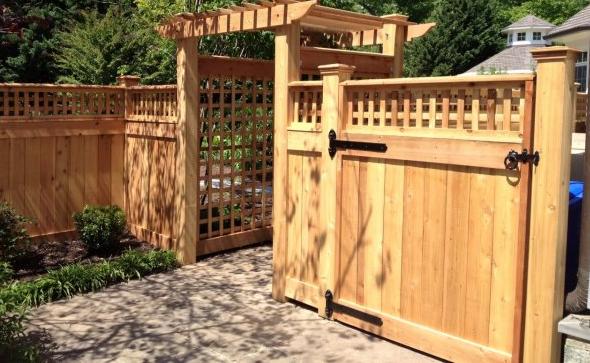All Categories
Featured

When planning to install a fencing around your building, among the primary steps is recognizing the permitting demands in your location. While the procedure might appear simple, neighborhood laws can differ significantly relying on where you live. Safeguarding the proper permits prior to starting the installment is essential to prevent prospective fines, disputes with next-door neighbors, or perhaps needing to eliminate your fence. Below's what you require to learn about obtaining the required authorizations for your fence setup.
Why Do You Need an Authorization for a Fence? A permit is usually required for fencing setups to make certain conformity with local building ordinance, zoning regulations, and safety regulations. Permitting aids neighborhood authorities keep uniformity in community appearances, security, and environmental factors to consider. It likewise guarantees that the fencing does not conflict with utility lines or public spaces, which it complies with height and limit restrictions.

Common Permits Required for Fence Installment. Building License. The majority of locations require a building permit for fence installation, specifically if the fence surpasses a specific height (normally over 6 feet) or is made from non-standard products. This authorization makes certain that your fence follows neighborhood building ordinance. In some locations, the structure division will certainly check the site to guarantee that the fence fulfills safety and structural criteria.
Zoning License. Zoning permits are designed to make sure that your fence complies with neighborhood zoning legislations, including obstacles from home lines, easements, and rights-of-way. Zoning regulations differ from city to city, and in many cases, your fencing might require to be held up a certain number of feet from the walkway or roadway. A zoning license might also be essential if your fencing remains in a historic area or various other specifically designated locations.

Fence Permit. In some locations, a certain "fence authorization" may be needed. Some cities restrict chain-link fences in front backyards or have certain guidelines for personal privacy fences.
HOA Authorization. You may need authorization prior to mounting a fence if your home is part of a property owners organization (HOA) HOA guidelines usually include specific guidelines regarding the type, height, shade, and materials for fencings to keep the area's appearances. HOA policies can be more stringent than city codes, so constantly examine their standards before progressing.
Easement or Utility Licenses. If your fence will certainly be near or throughout an easement (such as an utility easement), you might require to acquire consent from the energy firm or other entities that control the land. This is especially vital if you prepare to mine fencing posts, as it guarantees you won't harm underground utilities like power, water, or gas lines.
How to Figure Out What Permits Are Called for. The ideal means to determine which licenses are essential for your fence installation is to call your local building division or community office. They can provide you with particular info concerning needs in your location. Right here are a few actions you can require to learn:
Check the City or County Internet site: Many regional governments supply information about fence setup allows online. Look for building or zoning sections on their internet site. Call or Go To Citizen Federal Government Workplaces: If the info is not readily offered online, calling or seeing the regional office in person can clarify what's needed. Consult a Specialist Specialist: If you're unclear or overloaded by the process, a local professional or fence setup business can help in navigating the permitting process, as they know with neighborhood policies. What Occurs If You Do Not Get a Permit? Failing to obtain the necessary licenses can result in a range of repercussions. In several areas, you might deal with penalties, and your fencing may be bought to be gotten rid of. In addition, if you market your residential or commercial property in the future, the absence of proper authorizations might be a warning for customers and impact the sale. Permitting makes sure that your fence is compliant and helps avoid future difficulties.
Conclusion. Prior to installing a fence around your home, it's essential to check whether an authorization is required in your area. Building authorizations, zoning permits, HOA authorization, and energy permissions might all contribute in your fence setup process. Taking the time to study and acquire the needed licenses will not only guarantee that you're following neighborhood policies, but additionally aid shield your investment and maintain the honesty of your residential property.
Latest Posts
Commemorate Life's Moments at Deauville Inn
Published Apr 19, 25
1 min read
The Perfect Floor Covering for Every Home
Published Apr 19, 25
1 min read
Preventative Maintenance at Montclare Auto Repair: Maintain Your Vehicle Operating Like New
Published Apr 19, 25
2 min read